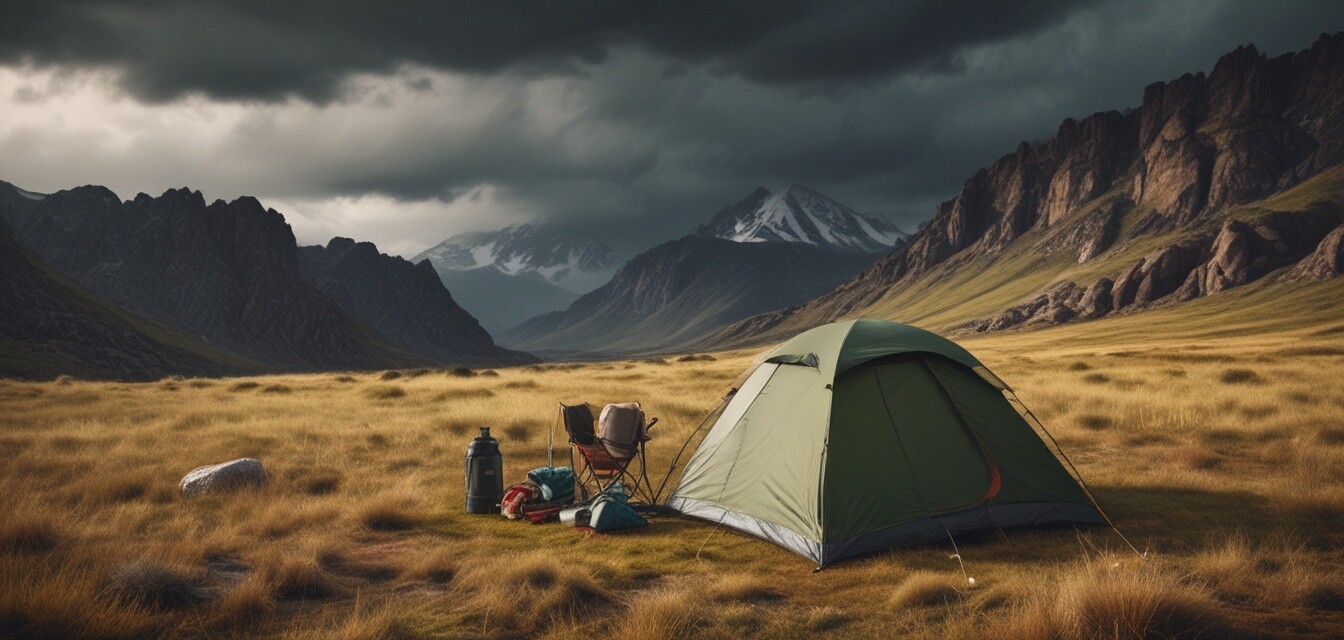
How to Prepare for Camping in Extreme Weather
Camping in the great outdoors can be a thrilling adventure, but extreme weather conditions can turn a fun trip into a challenging experience. This guide will help beginners prepare for and handle camping trips in extreme weather effectively, ensuring both safety and comfort.
Key Takeaways
- Understand the weather forecast before your trip.
- Pack the right gear for extreme temperatures.
- Know how to set up your campsite to withstand harsh conditions.
- Have an emergency plan in place.
- Stay hydrated and maintain energy levels while camping.
Why Extreme Weather Preparation Matters
Extreme weather, whether it's intense heat, cold, rain, or snow, can pose serious risks to campers. Being well-prepared can mean the difference between a potentially dangerous situation and a successful trip. Here are some essential aspects of preparation:
Stay Informed
Monitoring weather conditions is crucial.
- Check the forecast frequently leading up to your trip.
- Sign up for weather alerts, if available.
- Understand local weather patterns that can impact your camping area.
Essential Gear for Extreme Weather
Your gear can make a significant difference. Here are some items to consider:
| Weather Condition | Recommended Gear |
|---|---|
| Cold | Insulated tent, sleeping bags, thermal layers |
| Heat | Lightweight tent, sun protection, plenty of water |
| Rain | Waterproof tent, tarps, dry bags |
| Snow | 4-season tent, snow shovel, strong stakes |
Setting Up Your Campsite
Where and how you set up camp is crucial, especially in extreme weather.
Tips for Choosing the Right Campsite
- Avoid low-lying areas that can collect water.
- Seek natural windbreaks (trees or rocks) to shield from strong winds.
- Choose a level spot for sleeping and cooking.
- Keep a safe distance from water sources to avoid flooding.
Securing Your Shelter
Fastening your tent properly will help it endure extreme conditions:
- Use strong stakes and tie-downs to secure your tent.
- Always set the tent up with the entrance away from prevailing winds.
- If possible, orient your tent to minimize exposure to harsh elements.
Emergency Preparedness
No one wants to think about emergencies, but they can happen. Here’s how to be ready:
- Have a first-aid kit with essential supplies.
- Create an emergency contact plan and share it with others.
- Familiarize yourself with the nearest evacuation routes. :
Developing an Emergency Kit
An emergency kit can be critical to your safety:
| Item | Purpose |
|---|---|
| First-aid supplies | To treat minor injuries |
| Multitool | For various tasks and repairs |
| Flashlight | For visibility in dark conditions |
| Non-perishable food | For energy in case of emergency |
Conclusion
Preparing for camping in extreme weather is not just about choosing the right gear; it's about understanding and adapting to the conditions you may face. By taking proactive measures to prepare, you can enhance your camping experience and stay safe, allowing you to enjoy the beauty of nature to its fullest.
Additional Tips for Beginners
- Stay hydrated — carry enough water and snacks to maintain your energy.
- Practice setting up your gear at home before your trip.
- Travel with experienced campers who can offer guidance.
- Consider reading more about camping gear buying guides to ensure you have the best equipment for your trip.
Pros
- Preparedness increases safety and comfort.
- Knowing the weather can enhance your overall experience.
- Proper gear can help you enjoy nature despite harsh conditions.
Cons
- Extreme weather can sometimes force cancellations.
- Initial preparation can be time-consuming.
For more tips and tricks on camping, check out our section on Camping Tips and Tricks to refine your outdoor skills and knowledge.